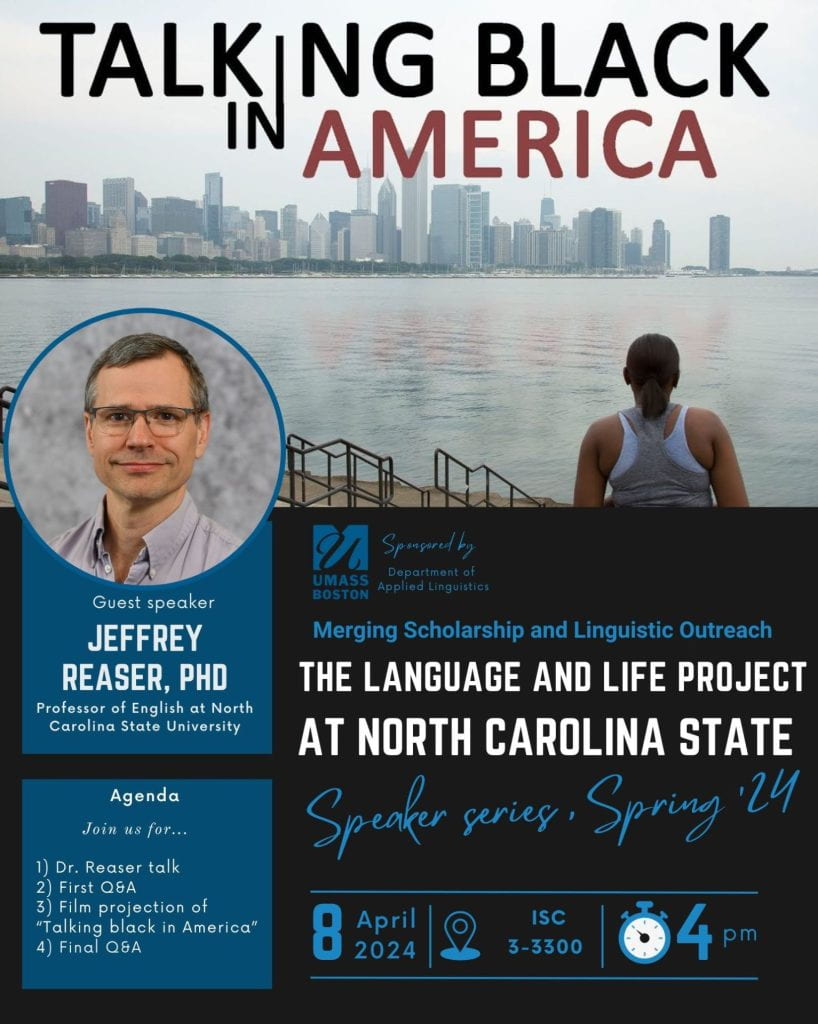Dr. Jeff Reaser was invited as a guest speaker to the Department of Applied Linguistics on April 8th, 2024. Presenting on “The Language and Life Project at NC State: Fusing Scholarship with Linguistic Outreach,” he elaborated on his team’s endeavors. Throughout his talk, he explored diverse regional dialects within North Carolina, illustrating their role in shaping a vibrant linguistic environment within the community. Additionally, he conducted a screening of the documentary “Talking Black in America.” The abstract of Dr. Jeff Reaser’s presentation is as follows:
Abstract: North Carolinians are fiercely proud of a lot of things, including their rich history, diverse culturally distinct regions, barbeque, landmarks, etc. But one cultural trait they tend to be a little embarrassed about is their dialects: They like how they speak, but they know that others judge them for it. North Carolinians are not unique in their complicated feelings about their speech. For over a half-century, linguists have held firm that no dialect is linguistically better or worse than any other dialect. Unfortunately, this message has not permeated public discourse about language diversity. This lack of success does not mean linguists should abandon the principles of error correction and linguistic gratuity. In fact, it suggests we ought to do more to engage the public. This outreach work is essential, as attitudes about language variation affect many areas of life, including housing, education, policing, criminal justice, and more. For over three decades, the Language and Life Project (LLP) at NC State has done academic research across and beyond North Carolina, amassing over 4000 sociolinguistic interviews that have led to hundreds of academic articles and books. However, unlike many other academic programs, our mission has always been to use that research in ways that improve the lives of the people who were generous enough to talk to us. The LLP has sought to operationalize linguistic gratuity in ways that benefit communities. Over the years, these projects have taken many forms, including oral history projects, video documentaries, museum exhibits, popular audience books, and websites. We have now extended our outreach work to other venues, including film festivals, the North Carolina State Fair, continuing education workshops for teachers, and a statewide dialect awareness curriculum for 8th graders. The goal of this work is to transform North Carolinians’ linguistic insecurity by celebrating all forms of language spoken in the Tar Heel state. This talk shares the lessons learned from thirty years of celebrating language and life with diverse communities and shares examples of the work extending form these collaborations, including the most recent documentary, the Emmy-winning Talking Black in America series.



